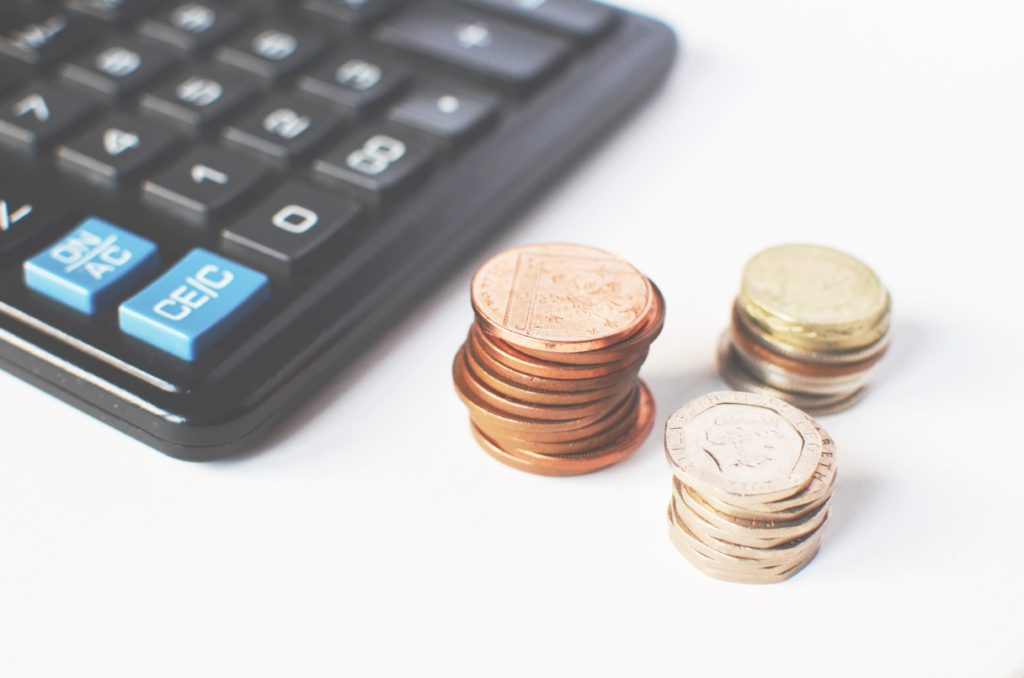Have you started that budget we’ve been talking about? Still wondering how to accomplish some lofty debt reduction goals? Well, the simplest answer is, just start by making a few changes. Small changes over time, add up to big changes. And big changes add up to real change. Exactly what we’re looking for.
Sometimes it’s something as small as eliminating excessive spending, curbing spending habits, couponing, and make a detailed budget.

Read below for some of our best tried and true habits that will help that budget of yours take shape.
- Track Every Expense– This is one of my favorite things to do. More often than not, most people with debt problems have no real idea about how much money they make or spend. Or what they spend it on. One of the things that I started years ago, even before I was really working on eliminating debt was to track my expenses. Now there’s plenty of online apps to do it, Quickbooks, Mint, or even Acorns. If you’re so inclined, sign on up. But I went with a cheaper version. I used excel, you could easily use the Google spreadsheet, which is free in Google Docs home. I go thru and do this monthly once my bank statement has posted. I made an excel sheet, with columns for everything. Now not only did this help track spending, but it helped me keep track of the money spent on business expenses. I have a sheet for personal expenses, and one for business. And I itemize everything. Down to the penny! There are categories for gas, eating out, insurance, phone bills, etc. Basically, every dime that goes out of that account is accounted for. What I was amazed by when I started, was how much money I was wasting on eating out. Like a lot of money! And guess what happened once I realized I was throwing money away? I stopped. It’s the #1 best thing I did for my financial self, and came in invaluable for tax purposes and even when I got audited!
- Eliminate All Excess Spending- So after I tracked every expense, I went thru and made a decision about what was necessary versus unnecessary needs. Things that I threw out, included stopping at Quicktrip for a Coke, ordering more than 2 movies a month on my Roku, and even money wasted on gambling. Not a huge gambler, but when I added it up after two trips to Vegas in a year, it totaled almost $500! That’s $500 that should have gone towards debt or an emergency fund! Check out these articles to learn more about curbing excess spending, 8 Monthly Habits to Curb to Save Money, Save $500 Month by Stopping These Things , 26 Way to Save Money on Monthly Expenses.
- Allocate for Expenses, Savings, Emergency Fund, Retirement– Sit down and figure out roughly how much your expenses are, (don’t worry we’re gonna do a budget!), how much you’d like to save each year, how big your emergency fund should be (3-6 months of expenses), and what you’d like to contribute to retirement. Now if your goals are bigger than you’re current income, then you need to start thinking about a side job. For info on starting an emergency fund, check out Why You Need An Emergency Fund.
- Budget– Draw up a basic budget. This doesn’t have to be anything fancy, I did mine on the excel sheet. There are plenty of pretty extensive budgeting apps and pdf’s online if you want something fancier, but I like the simplicity of the excel sheet. Sit down with your spouse and do this together. It’s IMPORTANT. Make sure that you’re both involved and agree to the terms you’re setting up. Nothing ruins a budget quicker than a spouse that’s not supporting it and is undermining the process. Make a list for all bills, contributions, savings, and retirement you want to contribute. For more info on budgeting check out, Budget Tips That Really Work.
- Pay Debt- One of the things that I tell people is that if you’ve got extra income, apply it towards debt. Make sacrifices in dining out, vacationing, going out and apply that to your debt. If your budget is extremely tight and you don’t have cash, think about a second job, side hustle, or picking up an extra shift. A complete commitment within your family to getting the debt paid off means that you’ll pay it off quicker and have peace of mind faster. Remember this isn’t necessarily forever, we just must sacrifice. For ways to pay down debt, check out 13 Simply Way to Pay Off Debt.
- Make a Schedule– Autodraft your bills, schedule specific days for grocery shopping, know when you’re bills are getting paid, make extra payments on credit cards if you can. Part of paying off debt and becoming in control of our spending is acknowledging that we must change our habits. Money is often wasted when we’re not paying attention. How much is it really gonna be if we just stop and get the kids McDonald’s, or stop at the gas station for a coke? Well not much initially, but over a year, it adds up to hundreds of dollars. Dollars that could be used to pay off debt, or put away in savings.
- Work Together– This is one that I can’t stress enough. If you’re in a relationship or married, this is pivotal. Like it can make or break your budget and your plans. You BOTH must be involved. And you both must be accountable to each other. There’s no wiggle room, it takes two to make it work in a family.
- Cut Up All But 1 Credit Card– Now there are some people that say you shouldn’t have any credit cards, some say you should have a couple in case of emergency. Truth is, I think you should have 1 for emergency’s only. And when I say emergency, I don’t mean that sale they’re having at Forever 21. I mean real emergencies. Like when you have a situation that depletes your savings and you’re still short. Whether it be medical, or auto, or something major. It can have a large credit limit, but more importantly, is a card that has a lower APR.
- Cash/Envelope System- This system might seem strange, but it really does work. Especially if you’ve got a partner that has trouble sticking to the rules of the budget. Like my BF! He’s got a terrible habit of stopping at the gas station for a coke and some cigarettes. Like EVERY DAY! Drives me crazy. So apart from the terrible habit of smoking, I told him that he needs a weekly cash system for his habits. We set a goal, which was a lot less money then he was spending on this habit before. He was encouraged to ration the cigarettes, (hello? He just needs to quit!), and not spend stupidly on random things like Coke. I mean, we have Coke at home! While there were some bumps and overspending, he’s come around and it’s much easier for him to see the cash in the envelope and realize that if it’s Wednesday morning and he’s running low on cash, then maybe that coffee and donut at the local Quiktrip isn’t worth it! To learn more about the envelope budget, try What Is An Envelope Budget?
- Have Goal(s)– So there’s really no point in my opinion, of making any real change in our lives, if it’s not directed at a goal. I know for me personally, I’m much more engaged and focused if I’m working towards something. So before you get started, sit down and jot down why you’re budgeting, want to accomplish. Is it pay down debt? Start an emergency fund? Save for a vacation? Give yourself a reason to work hard and make it happen! Interested in learning more, try How to Set A Smart Goal.
Taking control of your budget is honestly one of the most empowering, life-changing things we can do. Yes, I know this sounds dramatic, but financial health is one, if not the most, important skills we can have. Being financially healthy sets the tone for every aspect of our life. And one of the remarkable things that happen when we reach our goals is the extraordinary feeling of accomplishment. And with accomplishment comes self-esteem and self-worth and knowing that we can do anything we set our mind to. So put that pen to paper, or mouse to app and get to work! Change is comin and it feels great!!




